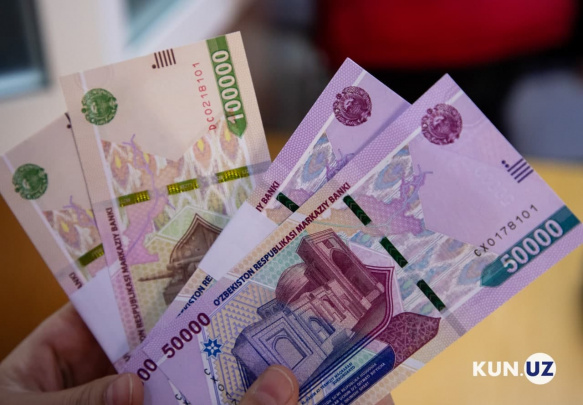What salary should officials receive so that they do not accept bribes?

Kun.uz correspondents conducted a sociological survey among Uzbek population. 1,200 people took part in the survey.
Since the survey was conducted anonymously over the Internet, criteria on age, profession and gender were not taken into account. Under the term “high-ranking officials”, such persons as khokims, ministers, chairmen of various committees and heads of other state institutions were meant.
To the question “what kind of salary should officials receive so that they do not take bribes?”, 45% of respondents indicated more than 20 million soums.
In addition, 25% of respondents believe that officials should receive from 8 to 10 million soums.
10% of respondents think that a salary of 4 to 5 million soums is enough for officials not to take a bribe, 9% - from 16 to 18 million soums, 6% - from 12 to 14 million soums and 5% - from 6 to 7 million soums.
As can be seen, many respondents (almost half of the respondents) think that a large salary (in the amount of more than 20 million soums) will prevent corruption at places. 20 million soums is almost $2,400. Indeed, one can take a mortgage loan (house) for this money, buy a car for a year and reimburse other expenses. In turn, other officials will receive less salary. For example, deputy khokim - from 16 to 18 million soums, heads of departments - from 14 to 16 million soums, etc.
Respondents were asked “do you think that a large salary will eradicate corruption?” Almost 70% of respondents answered YES. It turns out that many Uzbeks are confident that a good salary will stimulate the development of the country. Another part of the respondents shared on two fronts: 20% of respondents think that officials will still take a bribe, and 10% think that “salary increase is a useless measure.”
It is important to pay attention to the fact that in many countries anti-corruption is fought not only by the “handcuffs and prison” method, but also by encouraging officials. This is the method that Singapore used. In the last century, officials were paid increasing salaries timely.
Well-known political figure Lee Kuan Yew argued that civil servants should pay the highest wages because they deserved it, representing a decent and honest government. If they are underpaid, they may succumb to the temptation and engage in corrupt practices, he believed.
An increase in salaries has led to the fact that the best specialists have moved into the public sector. When a rapid economic recovery began in the country, wages of officials began to grow in proportion to the income of the private sector. Civil servants and judges in reponsible positions were raised to the level of top managers of private corporations. Initially, wages were fixed at a high level. Over the times, Lee Kuan Yew considered this system ineffective and proposed a new one, according to which the revision of ministers, judges and senior government officials would become automatic, linked to the amount of income taxes paid by the private sector. The wage calculation formula itself, which is still working, looks like this: the official’s salary level was defined as 2/3 of the income of private sector employees of a comparable rank that they showed in tax declarations.
For reference: salary of the minister in the administration of President Obama was $199,700 per year ($16,642 per month). Salary of all British ministers is on average 134,565 pounds per year. According to statistics, all members of the Canadian parliament receive an annual base salary of $160,200 per year, and government ministers at 57,500 per year.
In the Russian Federation (data for 2015):
1 dollar = 64,82 rubles
At the same time, the average monthly salary of employees of organizations in January 2018, according to Rosstat, amounted to 38,400 rubles and increased by 8,5% compared to January 2017.
Related News

18:00 / 18.02.2026
Inflation expectations in Uzbekistan drop to 11.2% as January optimism returns

17:38 / 02.02.2026
Migration and uneven development widen regional income divide in Uzbekistan

14:19 / 27.01.2026
Average monthly wage in Uzbekistan rises to UZS 6.38 million

20:26 / 13.01.2026




